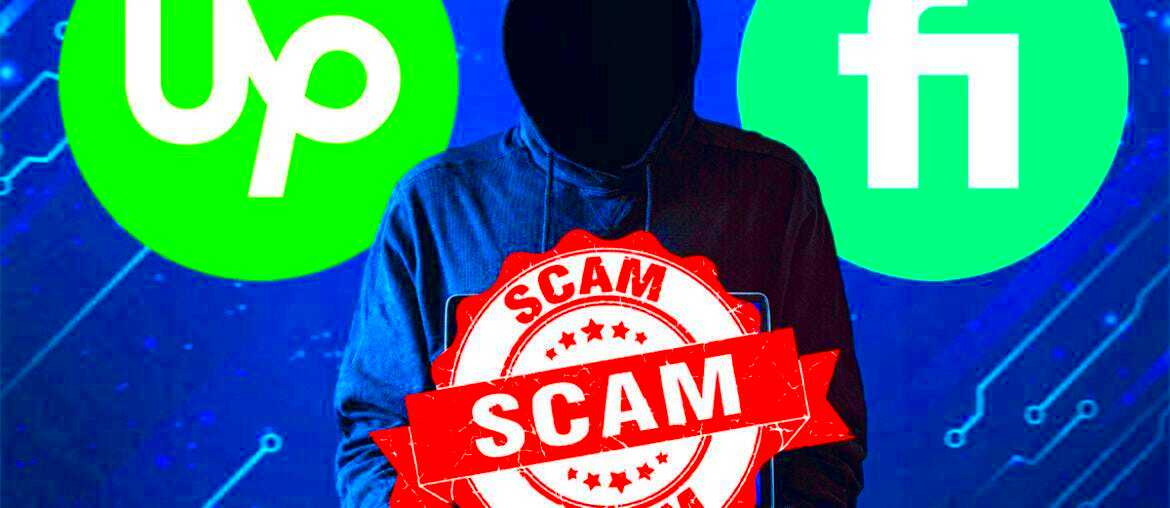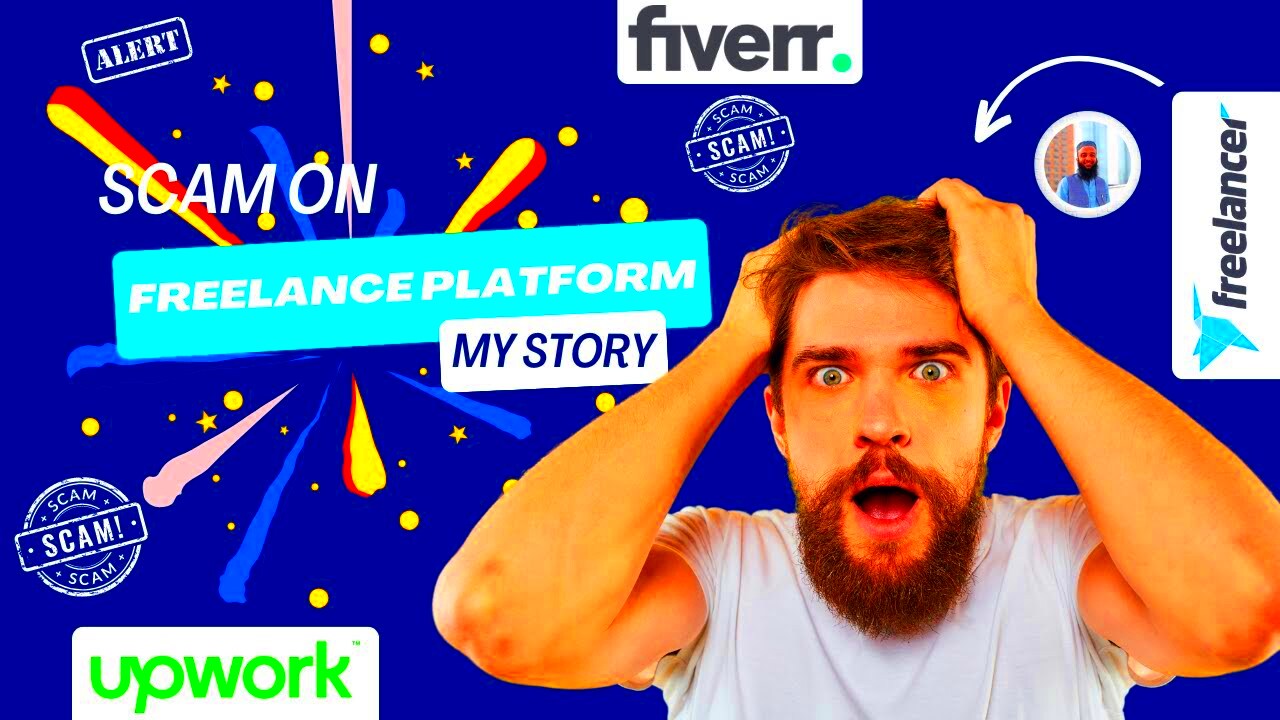Freelancing offers great flexibility, but it also comes with its risks, especially scams. As the freelance industry continues to grow, so do fraudulent activities targeting freelancers. These scams can happen to anyone, whether you're just starting out or have been freelancing for years. It's essential to be aware of the tactics scammers use to avoid falling victim to them. In this guide, we'll go over how to spot scams and protect yourself while working on freelancer platforms.
How to Identify Legitimate Freelance Opportunities

Knowing how to identify legitimate freelance opportunities is crucial for protecting yourself from scams. Here are some key signs to look for:
- Clear job descriptions: A legitimate job posting should be detailed, outlining the specific tasks, expectations, and required skills.
- Reasonable rates: While rates can vary, they should align with the type of work you're expected to do. Extremely low or unusually high rates may be a red flag.
- Positive reviews and ratings: Check the client’s profile for feedback from previous freelancers. A reputable client will have consistent positive reviews.
- Professional communication: Genuine clients typically communicate in a professional manner, are responsive to your questions, and provide clear instructions.
By staying alert and applying these tips, you can quickly distinguish real opportunities from potential scams.
Also Read This: Can You Download All Files from Fiverr at Once? A Comprehensive Guide
Common Types of Scams on Freelancer Platforms

Scammers on freelancer platforms employ various tricks to steal money or personal information. Below are some of the most common scams to watch out for:
- Advance fee scams: Scammers may ask for upfront payment for supposed services, like account setup or tools, but once paid, they disappear.
- Fake job offers: Some scammers create fake listings to lure freelancers into giving away their personal information or to scam them into working for free.
- Phishing attempts: These scams involve fraudulent emails or messages that look like official communication from the platform, asking you to click on links that steal your login details.
- Fake escrow scams: Scammers might convince you to use an escrow service they control. After the work is completed, they disappear with your payment.
- Overpayment scams: A scammer may send you a check or wire transfer for more than the agreed amount, asking you to return the difference. The original payment is fake, and you're left responsible for the full amount.
By recognizing these scams early on, you can avoid wasting time and money. Always stay cautious and never hesitate to report any suspicious activity.
Also Read This: How to Promote Etsy Shops on Fiverr
Steps to Protect Yourself from Scams

Protecting yourself from scams on freelancer platforms requires awareness and taking the right steps to ensure your safety. Here are some practical actions you can take:
- Use trusted platforms: Stick to well-known freelance platforms that offer secure payment systems and have a strong reputation for handling disputes.
- Keep personal information private: Never share sensitive personal details, such as your home address or bank account information, unless it’s absolutely necessary and the platform ensures security.
- Verify the job details: Always research the job offer and the client before accepting any work. Scammers often provide vague descriptions or unrealistic promises.
- Check payment terms: Ensure that your payment terms are clear before starting any work. Avoid agreeing to work without a clear contract or written agreement on payment.
- Watch out for too-good-to-be-true offers: If a job offer promises an unreasonably high payout for minimal work, it’s likely a scam. Trust your instincts—if it sounds too good to be true, it probably is.
- Report suspicious activity: If you encounter a suspicious client or job offer, report it to the platform immediately. Most platforms have a dedicated team for handling scams.
By following these steps, you can safeguard yourself from potential fraud and ensure a safe freelancing experience.
Also Read This: How to Sell on Fiverr Pro: A Comprehensive Guide
How to Verify the Credibility of Clients

Before committing to a project, it’s crucial to verify the credibility of the client. Here are some effective ways to assess whether a client is trustworthy:
- Review their profile: Look for a complete and well-established profile. A genuine client will have a professional profile with accurate information about their business.
- Check their ratings and reviews: One of the best ways to verify a client’s credibility is by looking at reviews from other freelancers. Positive feedback from multiple freelancers is a good sign.
- Ask for references or past work examples: If you’re unsure, request examples of their previous projects or references from past freelancers. A legitimate client will be open to providing this information.
- Look for consistency in communication: Consistent, clear, and professional communication is a key indicator of a reliable client. Beware of clients who are vague or slow to respond to your queries.
- Check for payment history: Many platforms allow you to view a client’s payment history. A client with a strong record of making timely payments is a reliable choice.
Verifying a client’s credibility before starting any work reduces the risk of scams and ensures a smoother freelance experience.
Also Read This: How to Start Working as a Freelance HR Consultant
Importance of Secure Payment Methods
Using secure payment methods is essential to avoid falling victim to fraud and to ensure you get paid for your hard work. Here’s why secure payments matter:
- Protection against fraud: Secure payment methods, like escrow services, hold the payment until both parties are satisfied with the work. This protects freelancers from clients who may try to back out or refuse payment after work is completed.
- Clear transaction records: Platforms with secure payment methods provide clear records of all transactions, which helps protect you in case of disputes. These records can be useful if you need to provide evidence of the agreed amount and work completed.
- Avoid payment scams: Some scammers ask for wire transfers or other insecure payment methods that can’t be traced. Always use trusted platforms that offer secure payment processing options like PayPal, bank transfers, or platform-specific systems.
- Peace of mind: Knowing that the platform handles payment securely means you can focus on your work without worrying about whether you’ll get paid. This peace of mind is vital for a healthy freelance career.
Choosing the right payment method and ensuring the platform offers protection is one of the most effective ways to safeguard yourself and your income as a freelancer.
Also Read This: Learn the Best Fiverr Profile Image Size
How to Report Suspicious Activity on Freelancer Platforms
Reporting suspicious activity on freelancer platforms is an essential step in maintaining the safety and integrity of the freelancing community. If you encounter anything that feels off or fraudulent, it’s crucial to act quickly. Here’s how you can report suspicious activity:
- Use the platform's reporting feature: Most freelancer platforms have a built-in reporting system. Look for an option to report suspicious job offers, messages, or profiles. This is the fastest way to alert the platform’s support team.
- Provide detailed information: When filing a report, include as much information as possible. Describe the situation in detail, provide screenshots or any communication exchanges, and explain why you suspect fraudulent activity.
- Notify your peers: If you encounter a scam, warn others by sharing your experience on community forums, discussion boards, or social media platforms where freelancers gather. This can help others avoid falling into the same trap.
- Follow up: After reporting the issue, follow up with the platform's support team to ensure they’re investigating the matter. If necessary, escalate the issue to a higher level of support.
By reporting suspicious activity, you help protect not only yourself but the entire freelancing community. It’s important to stay proactive and prevent scams from spreading.
Also Read This: Can I Get Refunds on Fiverr? A Comprehensive Guide
Conclusion and Final Thoughts
Freelancing is a rewarding career choice, but it’s not without its risks. Scams are a real threat, and staying vigilant is the key to avoiding them. By following the tips outlined in this post—identifying legitimate opportunities, protecting yourself, verifying clients, using secure payment methods, and reporting suspicious activity—you can minimize the risks and enjoy a successful freelancing career. Always remember to trust your instincts and take the necessary steps to safeguard your work and income. Freelancing can be a safe and fulfilling path when you stay informed and proactive about potential scams.
Frequently Asked Questions (FAQ)
1. What are some common signs of a scam?
Common signs of a scam include vague job descriptions, unrealistic payment promises, requests for upfront fees, or clients who refuse to use secure payment methods. If something feels off, trust your instincts and do some research before committing.
2. How can I avoid getting scammed when using freelance platforms?
To avoid scams, always use secure platforms, verify client credibility, avoid agreeing to work without clear terms, and never share personal information unless necessary. Always report suspicious activity to the platform.
3. What should I do if a client refuses to pay me?
If a client refuses to pay, first try to resolve the issue by communicating directly with them. If that doesn’t work, contact the platform's support team to report the issue. Many platforms offer dispute resolution services.
4. How can I protect myself from phishing scams?
To protect yourself from phishing scams, avoid clicking on links from unsolicited emails, especially if they ask for personal information. Always verify the source of any communication, and report suspicious messages immediately.




